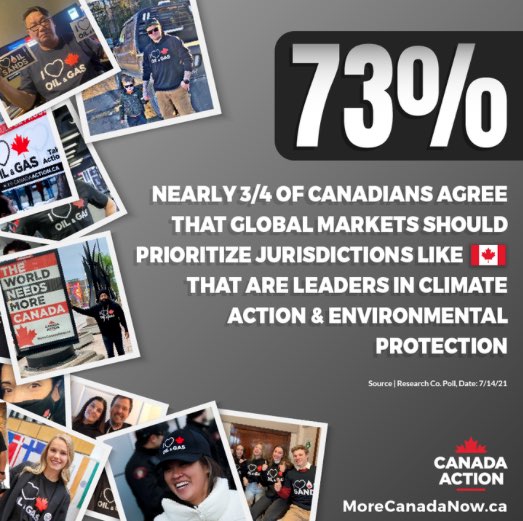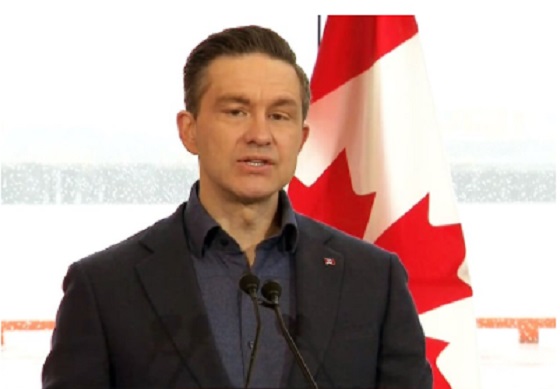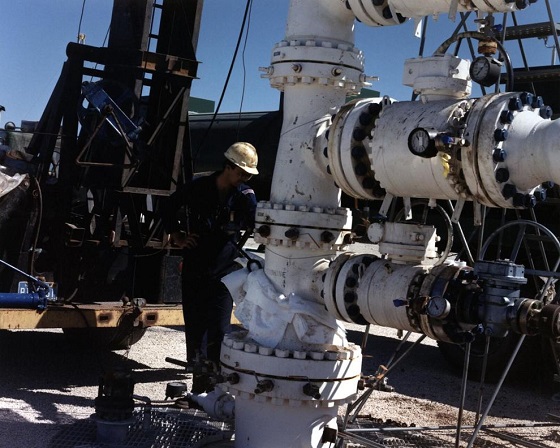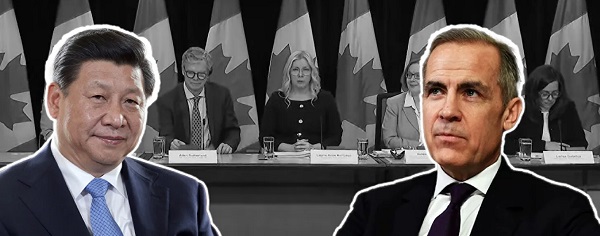Alberta
New opinion surveys reveal overwhelming majority of Canadians support our Oil and Gas industry

News Release from Canada Action
We are very excited to share some recent and encouraging polling results today. According to a July 2021 public opinion survey conducted by Research Co, new data shows that Canada’s public perception of our responsible energy industry is very positive.
Here are some of the key findings:
- Almost three in four (73 percent) Canadians polled agree Canada should be a preferred global supplier of energy because of its climate and environmental record.
- Nearly seven in ten (69 percent) say they have personally benefited from the oil and gas sector.
- 70 percent agree that resource development could help alleviate systemic poverty within Indigenous communities.
- Two thirds of Canadians (66 percent) support Canada’s role as a global oil and gas supplier.
- Almost three in four Canadians (73 percent) acknowledge Canada’s prosperity is supported by the oil and gas sector and that Canadian oil and gas production helps fund important social programs like health care and education.
Referring to the fact 73 percent of Canadians polled also agreed it’s essential First Nations be included in project development to establish long-term revenue sources for their communities, JP Gladu, acting Executive Director of Indigenous Resource Network, noted the following:
Taken collectively, this is all exceptional news for all of Canada’s natural resource industries. Your support for our positive, fact based message about why the world needs more Canadian energy and resources is helping make a difference.
A Majority of Canadians ‘Agree’ that Canada Should be a Preferred Global Supplier of Energy: POLL

A new public opinion survey conducted by Research Co. on behalf of Canada Action has found that a majority of Canadians across the country support the vital oil and gas sector! The poll, released on July 14th, showed that 68% of participants ‘agree’ that Canada should be the choice supplier to meet future oil and gas demand, while two-thirds (66%) support Canada’s role as a global oil and gas supplier versus just 19% who were opposed.
Additionally, almost three in four Canadians (73%) acknowledged Canada’s prosperity is supported by the oil and gas sector and that the industry helps fund important social programs such as healthcare and education.
“It’s a strong and very welcome result, and one that shows most Canadians feel proud of the work their energy sector is doing to enhance its record on ESG criteria. The results also show most Canadians believe the world needs more Canadian energy and are aware of the importance of the sector to the prosperity of families and communities right across the country,” said Cody Battershill, Canada Action founder.

Between 2000 and 2018, approximately $493 billion in government revenues were generated by Canada’s oil and gas industry, capital which has been used pay for schools, hospitals, roads and the workers that make these projects possible/operational. Every Canadian has benefitted from oil and gas in some way, shape, or form; nearly seven-in-ten Canadians (69%) of participants also acknowledged that Canada’s oil and gas sector has benefitted them personally.
Nearly three-in-four Canadians (73%) also agreed that global markets should prioritize jurisdictions like Canada that are leaders in climate action and environmental protection. This is a logical choice as Canada’s oil and gas industry ranks number one for Environmental, Social, and Governance (ESG) practices among nations with the largest oil reserves, and of the world’s top 20 producers, 2nd for governance and social progress and 4th on the environment.
“Given the world requires $525 billion of new oil and gas investment per year just to meet current demand, we think we ought to push for Canada to receive a sizeable share of this investment,” Battershill added.

Canada’s world-class ESG performance shows that our nation is home to one of the most environmentally conscious and sustainable oil and gas industries in the world. With future supply gaps on the horizon, it only makes sense that ESG-focussed investors look to Canada as a choice supplier for as long as the world needs oil – and it will for many decades to come.
73% of participants also agreed that it’s essential First Nations be included in project development to establish long-term revenue sources for their communities.
“These are heartening results. Indigenous nations and businesses want to be partners in resource development. This poll shows there’s widespread support to work together for the benefit of all,” said JP Gladu, acting Executive Director of the Indigenous Resource Network.
Below is a summary of all poll results collected by Research Co.
Poll Results:

– Two-thirds of Canadians (66%) support Canada’s role as a global oil and gas supplier, while one-in-five (19%) are opposed
– Almost seven-in-ten Canadians (69%) say the oil and gas industry has benefitted them personally
– Almost three-in-four Canadians (73%) agree that global markets should prioritize jurisdictions like Canada that are leaders in climate action and environmental protection
– Almost three-in-four Canadians (73%) agree that Canadian oil and gas products help fund important social programs like healthcare and education for Canadians
– More than seven-in-ten Canadians (72%) agree that sustainability measures are better served when energy is sourced from Canada compared to less environmentally friendly jurisdictions

– Seven-in-ten Canadians (70%) agree that Canada should be the choice recipient of investments due to its climate leadership and environmental policies
– More than two-thirds of Canadians (68%) agree that Canada should be the choice supplier to meet future oil and gas demand
– Over three-in-five Canadians (64%) agree that investing in Canada’s oil and gas sector makes sense if you value climate leadership, social progress and transparency
– Fewer than half of Canadians (45%) were aware that Canada is a leader for environmental, social and governance (ESG) practices among countries with the largest oil and gas reserves
– More than two-in-five Canadians (43%) were aware that Canadian energy companies are global leaders in carbon capture, utilization and storage

– Just over two-in-five Canadians (41%) were aware that Canadian natural gas exported to Asia can reduce global emissions by displacing coal power usage
– Almost three-in-four Canadians (73%) agree that global markets should prioritize jurisdictions like Canada that are leaders in climate leadership and environmental protection
– Almost three-in-four Canadians (73%) agree that Canada should be a destination of choice for energy investment due to its climate leadership, worker safety and environmental policies
– More than two-thirds of Canadians (68%) agree that Canada should be the choice supplier to meet future oil and gas demand
– Almost three-in-four Canadians (74%) think Canada should act in a similar fashion to Norway when it comes to energy practices, as the nation has said they will continue to maximize the value created from their oil and gas reserves

– Almost three-in-four Canadians (73%) agree that Canada’s prosperity is supported by the oil and gas sector practices
– Almost three-in-four Canadians (73%) agree that it is essential that First Nations be included in project development to establish long-term revenue sources for their communities
– Seven-in-ten Canadians (70%) agree that Systemic poverty within Indigenous communities could be alleviated with resource development
– Almost seven-in-ten Canadians (69%) agree that Indigenous and non-Indigenous communities in Canada should play a role in supplying our energy to meet domestic and global demands
– More than half of Canadians (56%) agree with the decision related to the TMX expansion, while one-in-five (21%) disagree, and a similar proportion (22%) are undecided. Support for the decision is highest in Alberta and Atlantic Canada (each at 63%), followed by Ontario (57%), Saskatchewan and Manitoba (56%), British Columbia (55%) and Quebec (52%)
– Over three-in-five Canadians (62%) think the Indigenous communities support the Trans Mountain Pipeline (TMX) project
– More than three-in-ten Canadians (31%) are more likely to support the Trans Mountain expansion upon learning of the views of Indigenous communities, while 7% are less likely to support. More than two-in-five (47%) say their position has not changed as a result of this fact
Results were based on an online study among 1,000 adults in Canada, conducted July 7 to 9, 2021 and weighted for age, gender and region. The margin of error—which measures sample variability—is +/- 3.1 percentage points, nineteen times out of twenty.
Join Us Today!
Learn more about Canada’s sustainable energy industry by joining us on Facebook, Twitter, and Instagram today – hope to see you there!
Back to Energy – Canada Action
Alberta
Alberta takes big step towards shorter wait times and higher quality health care

From the Fraser Institute
On Monday, the Smith government announced that beginning next year it will change the way it funds surgeries in Alberta. This is a big step towards unlocking the ability of Alberta’s health-care system to provide more, better and faster services for the same or possibly fewer dollars.
To understand the significance of this change, you must understand the consequences of the current (and outdated) approach.
Currently, the Alberta government pays a lump sum of money to hospitals each year. Consequently, hospitals perceive patients as a drain on their budgets. From the hospital’s perspective, there’s little financial incentive to serve more patients, operate more efficiently and provide superior quality services.
Consider what would happen if your local grocery store received a giant bag of money each year to feed people. The number of items would quickly decline to whatever was most convenient for the store to provide. (Have a favourite cereal? Too bad.) Store hours would become less convenient for customers, alongside a general decline in overall service. This type of grocery store, like an Alberta hospital, is actually financially better off (that is, it saves money) if you go elsewhere.
The Smith government plans to flip this entire system on its head, to the benefit of patients and taxpayers. Instead of handing out bags of money each year to providers, the new system—known as “activity-based funding”—will pay health-care providers for each patient they treat, based on the patient’s particular condition and important factors that may add complexity or cost to their care.
This turns patients from a drain on budgets into a source of additional revenue. The result, as has been demonstrated in other universal health-care systems worldwide, is more services delivered using existing health-care infrastructure, lower wait times, improved quality of care, improved access to medical technologies, and less waste.
In other words, Albertans will receive far better value from their health-care system, which is currently among the most expensive in the world. And relief can’t come soon enough—for example, last year in Alberta the median wait time for orthopedic surgeries including hip and knee replacements was 66.8 weeks.
The naysayers argue this approach will undermine the province’s universal system and hurt patients. But by allowing a spectrum of providers to compete for the delivery of quality care, Alberta will follow the lead of other more successful universal health-care systems in countries such as Australia, Germany, the Netherlands and Switzerland and create greater accountability for hospitals and other health-care providers. Taxpayers will get a much better picture of what they’re paying for and how much they pay.
Again, Alberta is not exploring an untested policy. Almost every other developed country with universal health care uses some form of “activity-based funding” for hospital and surgical care. And remember, we already spend more on health care than our counterparts in nearly all of these countries yet endure longer wait times and poorer access to services generally, in part because of how we pay for surgical care.
While the devil is always in the details, and while it’s still possible for the Alberta government to get this wrong, Monday’s announcement is a big step in the right direction. A funding model that puts patients first will get Albertans more of the high-quality health care they already pay for in a timelier fashion. And provide to other provinces an example of bold health-care reform.
Alberta
Alberta’s embrace of activity-based funding is great news for patients

 From the Montreal Economic Institute
From the Montreal Economic Institute
Alberta’s move to fund acute care services through activity-based funding follows best practices internationally, points out an MEI researcher following an announcement made by Premier Danielle Smith earlier today.
“For too long, the way hospitals were funded in Alberta incentivized treating fewer patients, contributing to our long wait times,” explains Krystle Wittevrongel, director of research at the MEI. “International experience has shown that, with the proper funding models in place, health systems become more efficient to the benefit of patients.”
Currently, Alberta’s hospitals are financed under a system called “global budgeting.” This involves allocating a pre-set amount of funding to pay for a specific number of services based on previous years’ budgets.
Under the government’s newly proposed funding system, hospitals receive a fixed payment for each treatment delivered.
An Economic Note published by the MEI last year showed that Quebec’s gradual adoption of activity-based funding led to higher productivity and lower costs in the province’s health system.
Notably, the province observed that the per-procedure cost of MRIs fell by four per cent as the number of procedures performed increased by 22 per cent.
In the radiology and oncology sector, it observed productivity increases of 26 per cent while procedure costs decreased by seven per cent.
“Being able to perform more surgeries, at lower costs, and within shorter timelines is exactly what Alberta’s patients need, and Premier Smith understands that,” continued Mrs. Wittevrongel. “Today’s announcement is a good first step, and we look forward to seeing a successful roll-out once appropriate funding levels per procedure are set.”
The governments expects to roll-out this new funding model for select procedures starting in 2026.
* * *
The MEI is an independent public policy think tank with offices in Montreal, Ottawa, and Calgary. Through its publications, media appearances, and advisory services to policymakers, the MEI stimulates public policy debate and reforms based on sound economics and entrepreneurship.
-

 Business2 days ago
Business2 days agoTrump eyes end of capital gains tax in 2025
-

 Bruce Dowbiggin2 days ago
Bruce Dowbiggin2 days agoBettman Gives Rogers Keys To The Empire. Nothing Will Change
-

 2025 Federal Election2 days ago
2025 Federal Election2 days agoPoilievre Will Bring in ‘One and Done’ Resource Approvals, and Ten Specific Projects Including LNG Canada Phase II
-

 conflict1 day ago
conflict1 day agoZelensky Alleges Chinese Nationals Fighting for Russia, Calls for Global Response
-

 2025 Federal Election1 day ago
2025 Federal Election1 day agoHarper Endorses Poilievre at Historic Edmonton Rally: “This Crisis Was Made in Canada”
-

 Energy2 days ago
Energy2 days agoEnergy group urges Trump administration to restock oil reserves
-

 2025 Federal Election1 day ago
2025 Federal Election1 day agoMark Carney’s radical left-wing, globalist record proves he is Justin Trudeau 2.0
-

 2025 Federal Election2 days ago
2025 Federal Election2 days agoElection Security Briefing Confirms CCP-Linked Operation Boosted Carney











